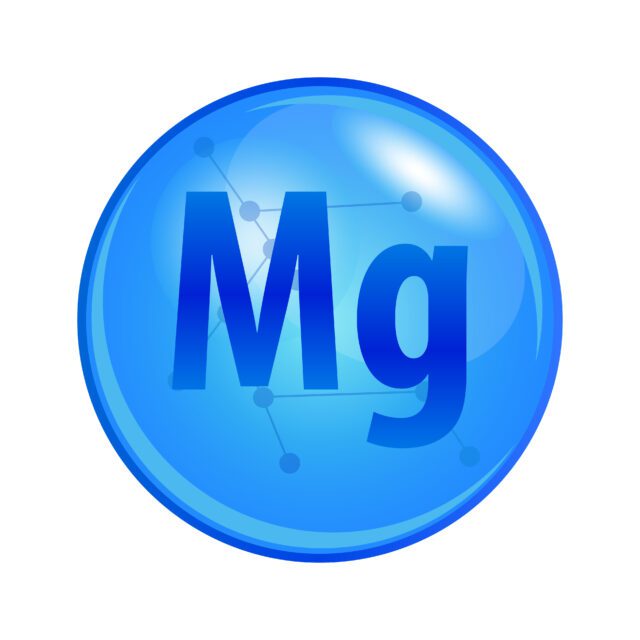Can a magnesium deficiency result in sudden death as a result of heart disease? Over the last thirty years or so, there’s been many published medical studies and journals suggesting that a lack of magnesium can have adverse negative effects on many of our vital organs. Magnesium is a macro-mineral essential to over 300 enzymatic reactions in our bodies, up to and including energy production, which is why low levels result in fatigue and muscle weakness. And in case you’ve forgotten, the heart is a muscle as well.
At a Glance
In today’s blog, we shall be discussing:
- What magnesium is, and why this mineral is so essential for many cellular reactions, including regulating heart health.
- What a magnesium deficiency can do to you and the symptoms to look out for.
- Clinical studies regarding the significance of magnesium preventing sudden death from heart disease.
- Foods rich in magnesium to help you get the recommended daily allowance.
- Magnesium supplements available for retail, ranging from pills and tablets to powders, lotions, and gels.
- The appropriate dosage you should receive and the side effects to be aware of in case of an overdose.
Nearly Half of America Fails to Meet their Daily Magnesium Allowance
That’s right, folks. According to a dietary survey conducted by the U.S. Department of Agriculture, nearly 50% of our nation, with up to 80% of that number made up of people over 70 years old, fail to meet the recommended daily allowance of magnesium. When we age, the ability to absorb the mineral depreciates over time as well. And those with pre-existing medical conditions might have a harder time maintaining adequate magnesium levels. For example, a person with type 2 diabetes will excrete magnesium from there body due to their body’s resistance to insulin, which causes frequent urination. Anyone with an excessive diuretic intake might also be prone to a magnesium deficiency, as well as someone that suffers from a gastrointestinal disease, such as Crohn’s disease.
Magnesium is Proven to Power Your Heart Muscles
Have you ever thought about whether you’re getting enough magnesium? To be honest, it’s not too surprising if you haven’t. Not a lot of people do, and few understand the importance of magnesium when it comes to their health, but, magnesium is very important when it comes to keeping your body in tip-top condition.
Why Does My Body Need Magnesium? Here is Your Answer!
Magnesium, the fourth most profuse mineral found in our bodies, is a natural mineral responsible from anywhere between 300 to 600 biochemical reactions in our bodies. Not exactly a lightweight. Magnesium helps our muscles relax through managing diminutions of the heart, preventing muscle spasms, transmits signals from the body and brain, and is essential to regulating heart health, as it’s needed for regulating the aforementioned muscle contractions. Some professionals say it’s competing against calcium, which is actually the most abundant mineral in our bodies since the magnesium counteracts the contractions stimulated by the former; therefore, helping the cells to relax.
Symptoms of Magnesium Deficiency Will Shock You
The list of signs and symptoms that can be caused by a magnesium deficiency may surprise you! And it might even provide you with the “a-ha” moment that you’ve been waiting for regarding a pesky symptom that your doctor hasn’t been able to put his finger on.
Complete List of Magnesium Deficiency:
- Difficulty swallowing or a “lump-in-throat” sensation
- Sensitivity to light
- Insomnia
- Anxiety
- Migraines
- Depression
- Hyperactivity and restlessness
- Numbness and tingling
- Salt and carbohydrate cravings
- Premenstrual irritation
- Breast tenderness
- Constipation
- Unusual sensations often described as “zaps” or “vibrations”
While these symptoms are not desirable, they pale in comparison to the big one, and the topic of today, heart disease. If you’re experiencing spasms of coronary arteries, causing palpitations, chest pain, irregular heartbeat, might be magnesium deficiency symptoms, which puts you at a higher risk of heart disease. And in case you didn’t know, cardiovascular disease, along with strokes, is the number one killer disease worldwide and has been for over the last decade, with a death rate of 610,000 annually within the US. In 2015, 17.7 million people died from heart disease worldwide, and 15.2 million more died of the following year. I
If you’re not getting the recommended daily allowance of magnesium, you’re at a higher risk of cardiac arrhythmias, congestive heart failure, and coronary artery vasospasm. What happens is that when our magnesium levels are too low, our heart cells become overstimulated, which can result in an irregular heartbeat.
The scary thing is up to 70% of Americans fail to meet the minimum dosage, as the recommended allowance is 300 to 400 mg. But why is that? More than likely, due to the number of processed foods we consume coupled with the lack of magnesium in our drinking water.
Prospective cohort studies have shown that there is 40% reduced risk of death from sudden cardiac arrest in areas where the community drinking water is richer in minerals, containing large amounts magnesium and calcium carbonates, also known as “hard water.” An epidemiologic study was conducted over fifty years ago to document whether there was a correlation in the incidences of heart disease and geographical location. In areas with treated water, which is also referred to as “soft water,” the drinking water is magnesium deficient and the amount of sudden cardiac deaths are higher. Why is that?
When our drinking water goes through the softening process, the deposits of calcium and magnesium are chemically removed and replaced with sodium ions. As a result, treated drinking water has a saltier taste, hydrates you less and is quite problematic for those with a sodium sensitivity.
Further conductive trials done between the late 60’s-early 70’s in Canada to document if the hardness of Ontario’s water had any effect on heart failure and sudden death. What they found in their research that areas with treated water, therefore, magnesium deficient, the death rates were high than areas with mineral rich, untreated water by 30%.
Even if you consume more magnesium through a more whole food-centric diet, you’re still not likely meeting the recommended daily allowance if you’re drinking hard water.
Up to 600,000 people die annually from sudden cardiac arrest, and a little over half of that happens outside of hospitals with a 10% rate of survival with an 8% chance of maintaining strong neurological functionality.
What Can You Do About Magnesium Deficiency?
Diagnosing a magnesium deficiency isn’t easy but it is necessary if you want to put an end to symptoms, or just get your body the magnesium it needs to function properly. While there are several tests that can help diagnose a magnesium deficiency, they are not considered very reliable on their own. Often the easiest thing to do is have your doctor consider your symptoms and lifestyle along with one or more of these tests, which include blood and urine analysis.
Here is What You Can Do to Ensure Your Body is Getting the Recommended Daily Allowance of Magnesium
So how do you know you have the right levels of magnesium? That’s where things get difficult. Again, a blood test for magnesium is difficult to gauge since most of the magnesium is stored in our cells and bones. The serum magnesium is only able to obtain so little of a sample; therefore, results could be inaccurate. Regardless of what your blood work says, assume your magnesium levels are worse than what you scored, which is really bad if you have a low score to begin with. Maybe the better question is, what can I do to increase my intake of magnesium?
One of the best ways to make sure you’re meeting the recommended daily allowance of magnesium, try better dietary habits. If you overdo it with your dosage, that can lead to some serious side effects, but that’s for a later section. Let’s talk more about reaping the benefits of magnesium with proper nutrition. Getting the magnesium that you need can be accomplished with supplements, injections prescribed by your doctor, and through eating more foods that are some of the best sources magnesium for a better heart-healthy diet, and just good heart health in general.
This is a List of Foods that Contain Magnesium:
- Green vegetables (the chlorophyll that makes them green contains magnesium)
- Whole wheat bread
- Peanuts
- Asparagus
- Noodles
- Cherries
- Brown rice
- Green beans
- Salmon
- Artichokes
- Broccoli
- Soybeans
- Rice Krispies
- Molasses
- Seaweed
- Coffee
- Quinoa
- Walnuts
- Turkey
- Espresso
- Pumpkin seeds
- Strawberries
- Seeds
- Apricot
- Chard
- Almonds
- Brazil nuts
- Oatmeal
- Bran flakes
- Lamb
- Buckwheat (no, not the Little Rascals character)
- Mackerel
- Tuna
- Wheat germ
- Chlorella powder
- Peaches
- Pears
- Cod
- Boiled Beef
- Baked Beans
- Veal
- Chicken (Both white and dark meat)
- Halibut
- Spinach
- Milk (skim, regular and low-sodium)
- Pecans
- Grapes
- Peanut Butter
- Cacao (preferably raw)
- Sunflower Seeds
- Fatty, oily fish
- Cashews
- Raspberries
- Chickpeas
- Eggs
- Sirloin
- Cabbage
- Legumes
- Alaskan King Crab
- Edamame
- Black beans
- Non-fat yogurt
- Oats
- Pineapple
- Bananas
- Grapefruit
- Raw vegetables (like tomatoes, cucumber, carrots)
- Figs
- Shrimp
- Dark Chocolate (no, really!)
- Kidney Beans
- Tuna
- Avocados
- Tofu
- Cream of wheat
Taking magnesium supplements or magnesium salts for your heart health couldn’t hurt either, which brings us to the next section…
Here Are Some Popular Magnesium Supplements
It doesn’t matter who you are or how you get it, your body needs magnesium, especially if you have a history of heart disease. There are various types of magnesium supplements that come in many forms of delivery, so if you’re not a fan of some of the following listed items, you have a lot to choose from:
- Magnesium salts: these inorganic minerals, which is a misnomer in name as it’s pretty close to the types of magnesium actually found in nature. They can be found in high volumes in magnesium chloride due to its water solubility, which, subsequently, helps in absorbency.
- Magnesium Sulfate: surly, at one point in time, you might have had to pour some Epsom salt on your driveway or sidewalk to melt the snow or ice. That friends, is magnesium sulfate, a naturally occurring mineral that can help reduce the symptoms of gastrointestinal distress and, most importantly, it helps stabilize heart repolarization. And what repolarization refers to is the potential of the membrane returning to a negative value right after it became positive due to depolarization. Essentially, it’s useful in the prevention of heart arrhythmia.
- Magnesium Capsules (Magnesium Carbonate): An oral supplement, a magnesium pill, basically, good for maintaining function nerves, muscles, and the heart. It also makes for an excellent antacid, eliminating symptoms of acid reflux.
- Magnesium Oxide: found in the earth’s crust, and making up 35% of its mass, is available in most stores where supplements are sold, and they usually go for pretty cheap. Unfortunately, one of the reasons they do sell at such a low cost is because of the low volume of magnesium in it. But if you’re looking for something more cost efficient than health efficient, look no further here.
- Magnesium Oil: made with the combination of water magnesium chloride flakes, this oil is easily absorbable when applied to the skin. Good for helping with hypertension and heart disease.
There’s also:
- Magnesium Gel
- Magnesium Lotion
- Magnesium Lactate
- Magnesium citrate (Also good for constipation)
But wait, there’s more! You’re probably wondering, how can there possibly be anymore? The following is considered to be some of the absolute best magnesium supplements, but keep in mind, with better results come to a higher cost. So, some of these can get a little pricey.
Top-Rated Magnesium Supplements:
- Magnesium Glycinate
- Magnesium Ascorbate
- Magnesium Taurate
- Magnesium Orotate
- Magnesium Malate
Recommended Daily Allowance (RDA) of magnesium and Possible Side Effects
Since we do get magnesium from the foods we eat, it might be best for everyone ages 9 and up take up to 240 mg daily. Women 14 years of age and up should 310 to 360 mg daily, and men, also 14 and up, 400 to 410 mg daily. By all means, please be aware of the dosage you’re taking, as it is possible to overdose on magnesium, which could lead toxicity and possibly death, which is the very thing we’re trying to prevent at the hands of heart disease. Having something else killing you does not mean you beat the cardiovascular disease, arrhythmia or congestive heart failure.
If you are going to go the supplement route, your dosage should fall around 400 to 500 mg of magnesium per day; maybe even start off with lower amounts to see if you receive any benefit or, at the very least, see your symptoms lessen. Though some of us could certainly use more in our diet (even up to 1000 mg per day), there is such a thing as getting too much magnesium. Excessive magnesium could cause diarrhea and could be toxic for those who suffer from kidney disorders. Unless your doctor says otherwise, it’s advisable to stay between 400 mg and 1000 mg daily.
Additional side effects from overdoing include fatigue, muscle weakness, drop in blood pressure inability to urinate, irregular heartbeat, and, lastly, a heart attack, which is counterintuitive since it provides so many benefits to your heart and your heart health.
Insider’s Health Exclusive –>>: Trending Article: Consuming this single ocean nutrient daily will REDUCE ALL terminal disease risk by OVER 70%
View Why a Nobel Prize Winner Called THIS the “Single Link to ALL Terminal Disease”









